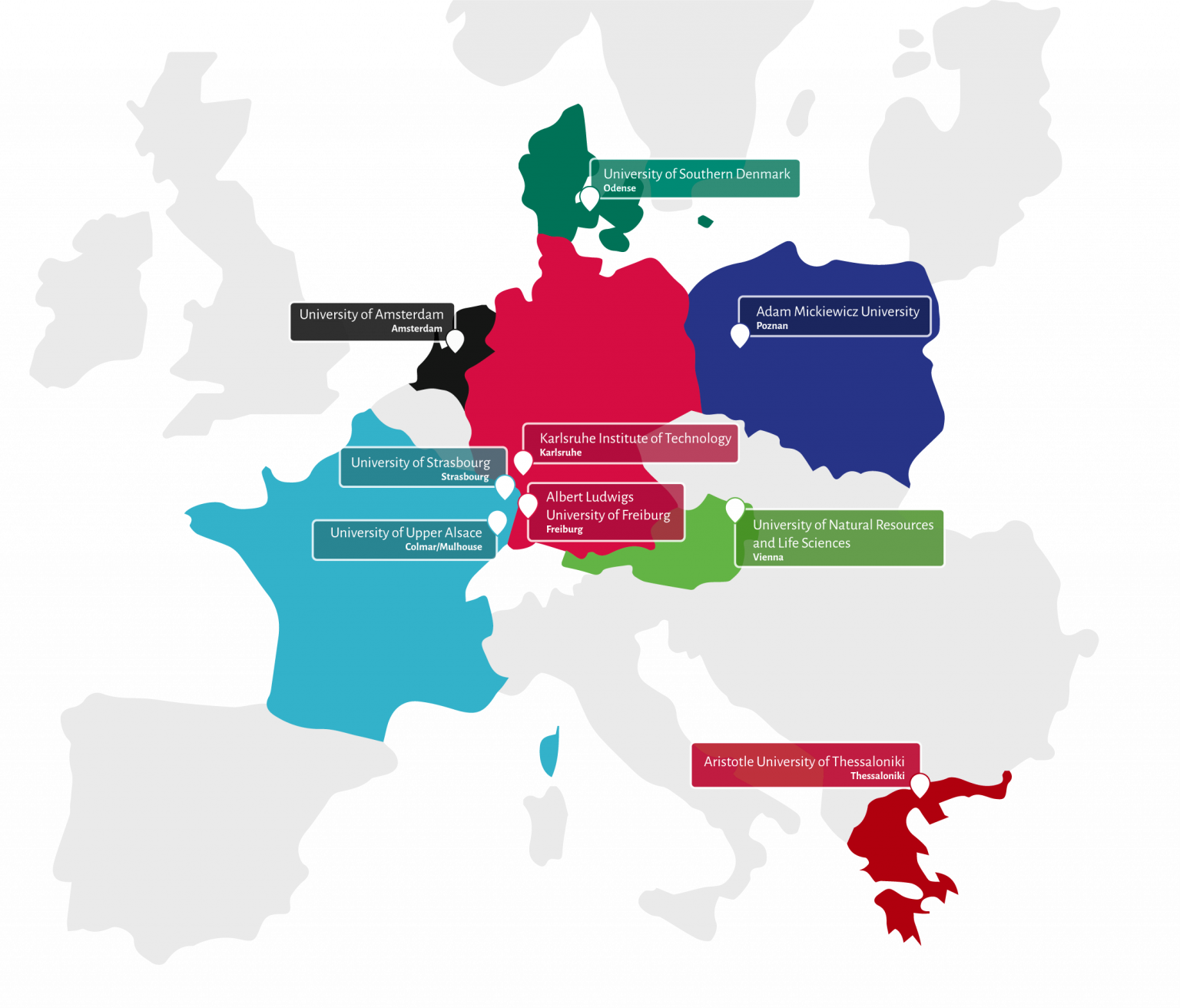EPICUR, the European University Alliance, is belonging to the first generation of European Alliances to pilot a new way of intensifying collaboration among Higher Education institutions through the creation of a European University.
Since November 2019, the teams in the 9 universities of the alliance are working together to test and experiment different approaches to make this vision a reality such as through multilingualism and safeguarding and strengthening European linguistic diversity, through student-centred learning and collaborative teaching formats inspired by a Liberal Arts and Science approach, through service-learning and research based internships closely connected to our regional eco-systems, and through imagining and facilitating new forms of mobility (physical, virtual, blended) available within an EPICUR inter-university campus.
. The EPICUR alliance is made up of 9 partners of higher education in Europe:
- Adam Mickiewicz University, Poznań, Poland
- University of Amsterdam, The Netherlands;
- Aristotle University of Thessaloniki, Greece;
- University of Freiburg, Germany;
- University of Haute-Alsace, France;
- University of Southern Denmark, Denmark
- Karlsruher Institute for Technology, Germany;
- University of Natural Resources and Life Sciences, Vienna, Austria;
- University of Strasbourg, France.
Key axes and organisation of EPICUR
The first three years of the project correspond to a pilot phase in the long-term process of creating the European University fully integrated with partner universities. The project consists of six action programmes, each led by a university member of the alliance:
- Project management, steering the alliance (Strasbourg);
- Promote multilingualism and inclusive governance (Amsterdam);
- Implement innovative methods of learning and teaching for the European citizens of tomorrow (Freiburg);
- Open the way to an interuniversity campus, using a student and staff-centered approach (Aristotle U-Thessaloniki);
- Strengthen and connect regions through a European university: development within and between European regions (KIT);
- Dissemination and sharing of good practices, sustainable cooperation (Strasbourg).
The EPICUR alliance places the teaching of “Liberal Arts and Sciences Education” at the centre of its project: one of the long-term objectives is the creation of a four-year “European bachelor of liberal arts and sciences”, taught in English at several EPICUR universities.
The digital transformation of teaching formats and the development of student mobility are also priorities: the challenge is to develop a new educational approach based on the concept of inclusive excellence.
By 2025, the new generation should be able to master at least two foreign languages. Multilingualism and inclusion should consolidate European linguistic diversity while ensuring access for all to university studies.
From the links anchored between the partner institutions, the EPICUR alliance was conceived in a logic of increasing interconnection with the aim of linking in the short term, their respective networks existing in higher education and research.









